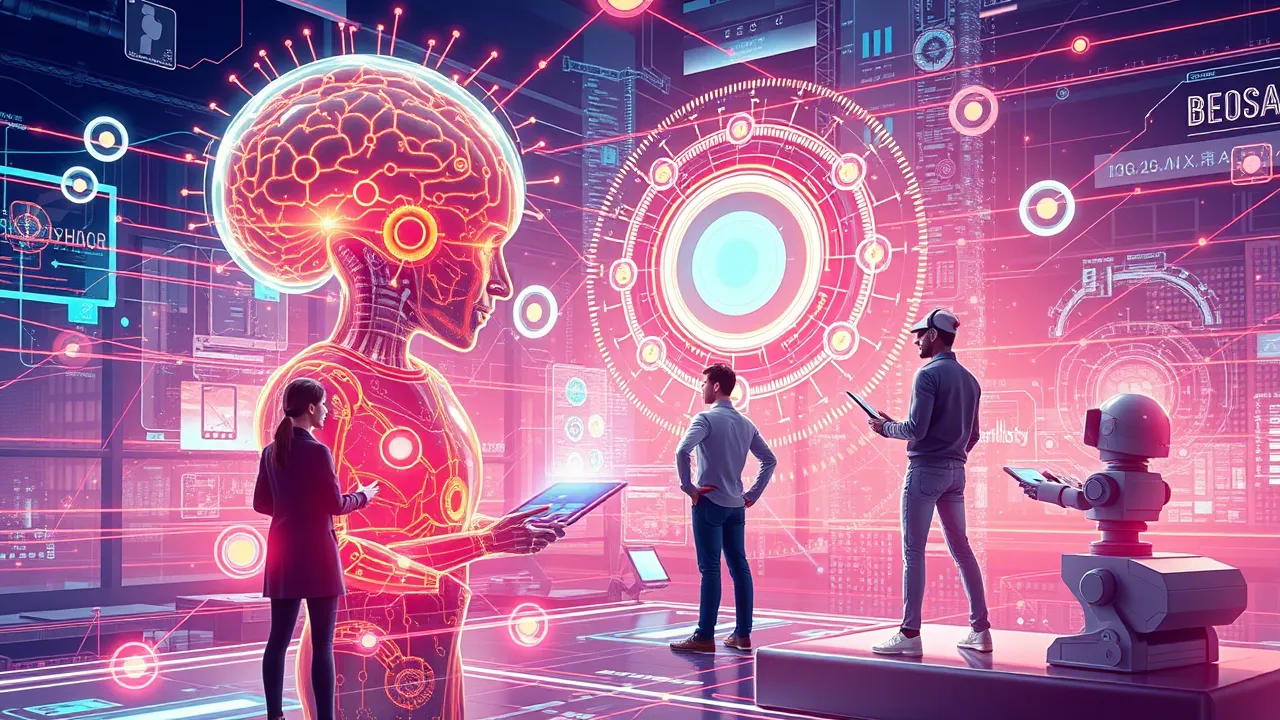Welcome to 2025, an era where artificial intelligence has ceased to be merely a tool for information processing and has transformed into an active participant in our digital lives. One of the most exciting developments in this evolution has been the rise of AI agents – autonomous systems capable not only of analyzing data but also of independently making decisions and taking actions to achieve set goals. These are no longer just chatbots; they are complex software entities changing the technological landscape.
So, what is an AI agent?
Unlike traditional programs that operate on strictly defined algorithms, or even advanced chatbots that respond to queries, an AI agent possesses the ability to perceive its environment (digital or even physical), plan a sequence of actions, adapt to changing conditions, and learn from its experience. Key capabilities of modern AI agents include complex planning and task decomposition, the ability to use external tools and APIs (as seen in recent model updates from OpenAI, Google, and Anthropic), context and memory retention between interactions (as with xAI's Grok), and increasingly deep multimodal understanding of information.
Drivers of AI Agent Development
Recent advancements in large language models (LLMs) and multimodal AI have served as powerful catalysts for the development of AI agents. Models like enhanced versions of Gemini, Claude with its "connect to the world" capability, and specialized agents in Microsoft Copilot products demonstrate the ability to perform complex, multi-step tasks that previously required human intervention. For example, an AI agent can independently conduct market research, compile a report, schedule a series of meetings, and even initiate certain operations within corporate systems.
Application Spheres of AI Agents
The applications for AI agents are rapidly expanding:
- Personal Assistants: Imagine an AI assistant that not only reminds you of events but proactively manages your schedule, filters emails, orders necessary goods, and even helps with learning by adapting to your style.
- Business Automation: AI agents can revolutionize customer service by managing inquiries and resolving issues 24/7. They can automate routine office tasks, manage supply chains, conduct complex financial analysis, and even assist in software development, as demonstrated by tools like OpenAI's Codex CLI.
- Scientific Research: Agents can assist scientists in processing vast datasets, formulating hypotheses, planning experiments, and even writing scientific papers.
- Creative Industries: From idea generation to project management and even creating individual content elements, AI agents are finding their place here as well.
Key Challenges and Ethical Questions
However, along with immense potential, the proliferation of AI agents also brings serious challenges. Issues of safety and control over autonomous systems come to the forefront. How can we ensure that an agent's actions always align with ethical norms and user intentions? The problem of potential job displacement due to automation requires proactive social and economic solutions. Issues of bias in algorithms, the confidentiality of data that agents work with, and legal accountability for their actions must be addressed.
The Future with AI Agents
Looking to the future, it's safe to say that AI agents will become an integral part of our world. We will see even closer human-AI integration, where agents act not just as tools but as fully-fledged digital partners. The key to a successful future with AI agents lies in a responsible approach to their development, the implementation of robust control mechanisms, and ongoing public dialogue about their role in society.
